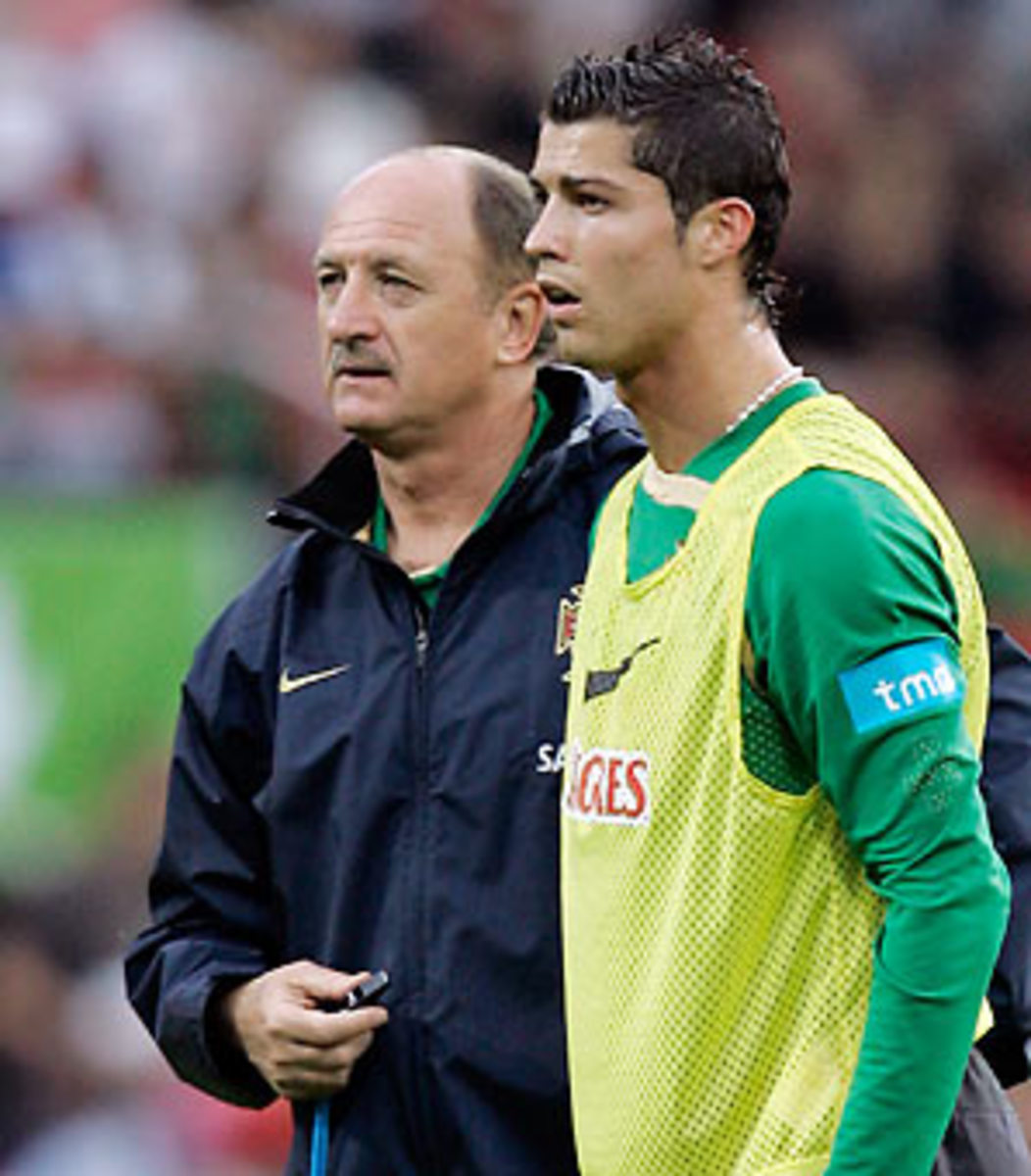
A bigger challenge for Big Phil
ZURICH, Switzerland -- A friend of mine, one who made the curious decision of going into politics, once told me: "Figuring out what to do isn't that hard. The tricky part is knowing how to get it done and actually getting it done."
He might as well have been talking about Portugal coach (and recently appointed Chelsea boss) Luiz Felipe Scolari. Felipão is neither a tactical genius nor a footballing Messiah. What he does do -- better than most -- is execute.
He gets an idea of what he wants to do and he does it. And, because he also happens to be a very skilled man-manager and motivator, it usually works out. Exhibit A: Brazil in the 2002 World Cup. Scolari knew he had a talented, but somewhat ill-assorted squad. He had three very gifted attacking players -- Ronaldo, Rivaldo and Ronaldinho -- and two outstanding, if aging fullbacks, Cafú and Roberto Carlos.
He could have played a 4-3-3, but that would have left the flanks exposed, as both Cafú and Roberto Carlos lacked the energy and propensity to do the defensive work to his standard. So he did something no Brazilian manager (with the exception of the brief -- and disastrous -- Sebastião Lazaroni regime) had done: He added a third central defender.
Presto! Cafú and Roberto Carlos felt free to bomb down the wings. The front three worried a little less about tracking back to defend, knowing there were numbers at the back. And Brazil handily won the World Cup.
His three-man defense was viewed with suspicion, as was his decision to play a genuine holding midfielder like Gilberto Silva in front of the back three. In hindsight, what he did seems obvious and logical. But, of course, he actually went and did it, persuading the players and, eventually, the media, that it was the right thing to do.
Portugal is a similar story. At Euro 2004, he was under tremendous pressure to start the hugely popular -- and hugely talented -- Manuel Rui Costa. But he knew that Deco, who was younger, more energetic and more inclined to move the ball quickly, worked better in his system. And so he stuck Deco in the lineup, while managing to make Rui Costa feel as important, albeit in a limited role.
Those kinds of skills are what make Scolari a very good manager. He's a pragmatist, with an exceptional ability to simply get things done. Beyond that, he can be abrasive (though he has tried to mellow of late), his personnel choices are sometimes dubious and, sometimes, he gets the big decisions wrong (Portugal did contrive to lose to Greece twice at Euro' 04). But hey, nobody is perfect.
The Chelsea appointment on Wednesday puts him in a curious position. He's moving straight into club management after the tournament and he's currently looking after Cristiano Ronaldo, the star player of Chelsea's direct rival in the Premier League, Manchester United.
If Ronaldo comes to him looking for advice -- like, say, whether or not he should push for a move to Real Madrid -- what is Scolari going to tell him? In one fell swoop, Scolari can tell his star player what he wants to hear and rid United of its best player. It's the kind of potential conflict of interest which is infuriating Manchester United and which leads the smart money to conclude that Ronaldo will not be at Old Trafford next season.
Scolari at Chelsea will be one of the most fascinating tales of the 2008-09 season. After the ethereal Avram Grant, Chelsea has gone back to a big manager with an even bigger personality. The main concern right now is how he will fare back in club management, something he hasn't done in seven years. And, of course, he's never actually managed in Europe (though his career has taken him to Brazil, Japan and the Middle East).
But first, he has a golden opportunity to become only the second man to win the World Cup and the European Championships (Helmut Schön did it with Germany in '72 and '74). There's a reason why Portugal is quickly becoming the fashionable choice to win Euro '08: A lot of it has to do with the Ronaldo hype machine, of course, but more than a bit has to do with Scolari.
• David Villa's hat trick against Russia apparently added another $15 million to his transfer price. This is what I really don't get. If clubs, with all their scouting and experts, knew just how good he was before, why would a single hat trick make them think he is now even better? And, equally, if they thought he was overrated before, how does a single game change their opinion?
• Zlatan Ibrahimovic's goal against Greece was his first for Sweden in more than two years. A warning to opposing defenses: If this means his slump is over, it's time to be afraid, very afraid. Then again, it might just be the same old Zlatan, fancy and inconsistent.
• For most of this tournament, I'm staying here in Zurich, right in the middle of the Red Light District (lucky me). Last night, the streets were invaded, first by celebrating Portugal fans, then by (even louder) Turkish supporters. The party lasted well into the night. And no sign of violence anywhere. It was enough to bring a smile even to the most cynical of hacks.





